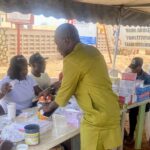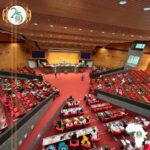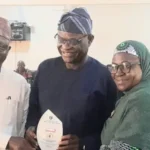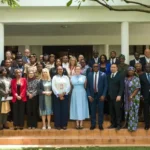By Deborah Akpede
The International Visitor Leadership Programme Alumni Association (IVLPAA), in collaboration with the United States Consulate in Lagos, has called on media practitioners to adopt responsible and ethical approaches when reporting suicide cases.
The call was made on Friday in Ikeja during a capacity-building workshop for journalists with the theme: “The Role of the Media in Suicide Prevention.”
President of IVLPAA, Mr Dapo Oketola, said that media reports on suicide had the power to either trigger further incidents or promote healing.
“Irresponsible media coverage can lead to suicide contagion, but responsible reporting can save lives,” he said.
According to Oketola, suicide is preventable, but silence, stigma, and sensationalism continue to fuel the crisis in Nigeria.
He urged journalists to use their platforms to promote hope, resilience, recovery, and help-seeking behaviour.
“Media stories that highlight individuals overcoming suicidal thoughts, accessing support systems, and recovering from mental health challenges can significantly reduce suicide rates,” he said.
“Shift the focus from tragedy to resilience. Use strength-based, positive language and present a balanced perspective.”
According to him, responsible reporting not only helps those at risk but also provides solace to grieving families, breaks the silence surrounding mental illness, and contributes to public awareness.
“Let us report with empathy, ethics, and impact,” Oketola added.
He identified the root causes of suicide in Nigeria as mental ill-health, socio-economic stress, substance abuse, domestic and emotional abuse, stigma, and cultural beliefs.
Also speaking, Mr Sola Fabiyi, a former editor of Punch Weekend Titles, described suicide reporting as a delicate aspect of journalism that must be handled with sensitivity.
“Poorly reported suicide cases can stigmatise, encourage copycat behaviour, and worsen public health outcomes,” he said.
Fabiyi advised against sensationalising suicide stories and recommended that journalists use non-stigmatising language.
He urged media professionals to replace the phrase “committed suicide” with “died by suicide”, and avoid sharing graphic visuals or detailed descriptions of suicide methods or locations.
“Do not grab attention at the expense of dignity and sensitivity,” he warned.
He further urged the media to always provide help-seeking information in their reports.
“A story that ends in tragedy without offering a lifeline can feel hopeless to someone already struggling,” Fabiyi said. (NAN)(www.nannews.ng)
Edited by Kevin Okunzuwa












